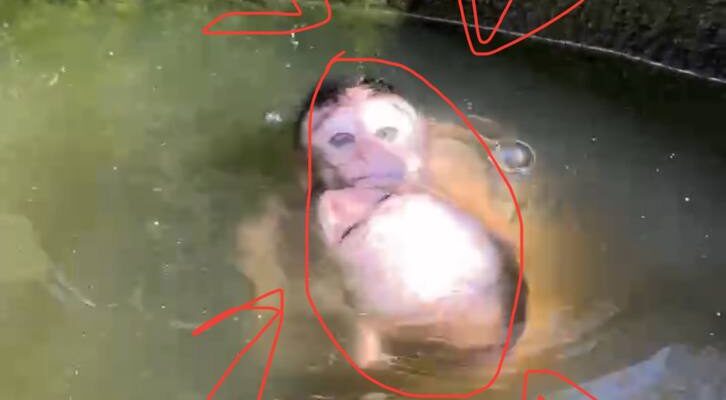Monkeys are intelligent, social creatures, and baby monkeys are especially vulnerable to accidents—especially around water. Whether it’s a natural water body like a river or an artificial one like a swimming pool or well, a baby monkey in distress needs immediate, calm, and informed intervention. Here’s a helpful guide on how to safely assist a baby monkey from water and ensure its safety.
1. Assess the Situation from a Distance
Before acting, take a few moments to evaluate the situation. Is the baby monkey struggling? Is it partially submerged or fully underwater? Are there adult monkeys nearby? Adult monkeys can become aggressive if they feel threatened, so it’s essential to approach with caution.
If the baby is in imminent danger (drowning or unconscious), act quickly but carefully. If it’s not in immediate danger, take time to prepare the safest approach.
2. Ensure Your Own Safety First
Wild animals, even babies, may bite or scratch when frightened. Before attempting a rescue:
- Wear protective gloves if possible.
- Use a stick, pole, or cloth to help, instead of bare hands.
- If the monkey is in deep water, avoid jumping in unless you’re trained in animal rescue or swimming. Instead, try to guide the monkey toward a reachable area using a long branch, rope, or net.
3. Gently Remove the Monkey from the Water
If the baby monkey is reachable, use a towel or a cloth to carefully lift it from the water. Avoid sudden movements or loud noises, as the animal is likely already terrified. Support its body gently—cradling it as you would a human baby—and try to keep it warm.
If the monkey is injured or unconscious, you may need to perform very light chest compressions or tilt its head downward to drain water from the lungs. However, these actions should only be done if you have basic first-aid knowledge for animals.
4. Keep the Monkey Warm and Dry
Once out of the water, warmth is critical. Wrap the baby monkey in a dry towel or soft cloth and keep it close to your body for heat. Avoid direct sunlight or cold air. Never feed the monkey or force it to drink water right away—it may cause choking or more harm.
5. Contact Wildlife Authorities or a Rescue Center
The most important step is to get professional help. Call a local wildlife rescue organization, veterinarian, or forest department as soon as possible. They are trained to treat trauma, prevent infections, and reunite young monkeys with their groups if possible.
6. Do Not Try to Keep It as a Pet
Even though it may be tempting to care for a baby monkey, keeping wild animals as pets is not only illegal in many places but also harmful to their physical and emotional health. Let the professionals do their job and help the monkey return to the wild or its troop.
Final Thoughts
Helping a baby monkey from water is a noble and kind act. But doing it right—safely, calmly, and with the animal’s best interest in mind—is what truly makes a difference. Be informed, stay safe, and always work with trained wildlife professionals.



